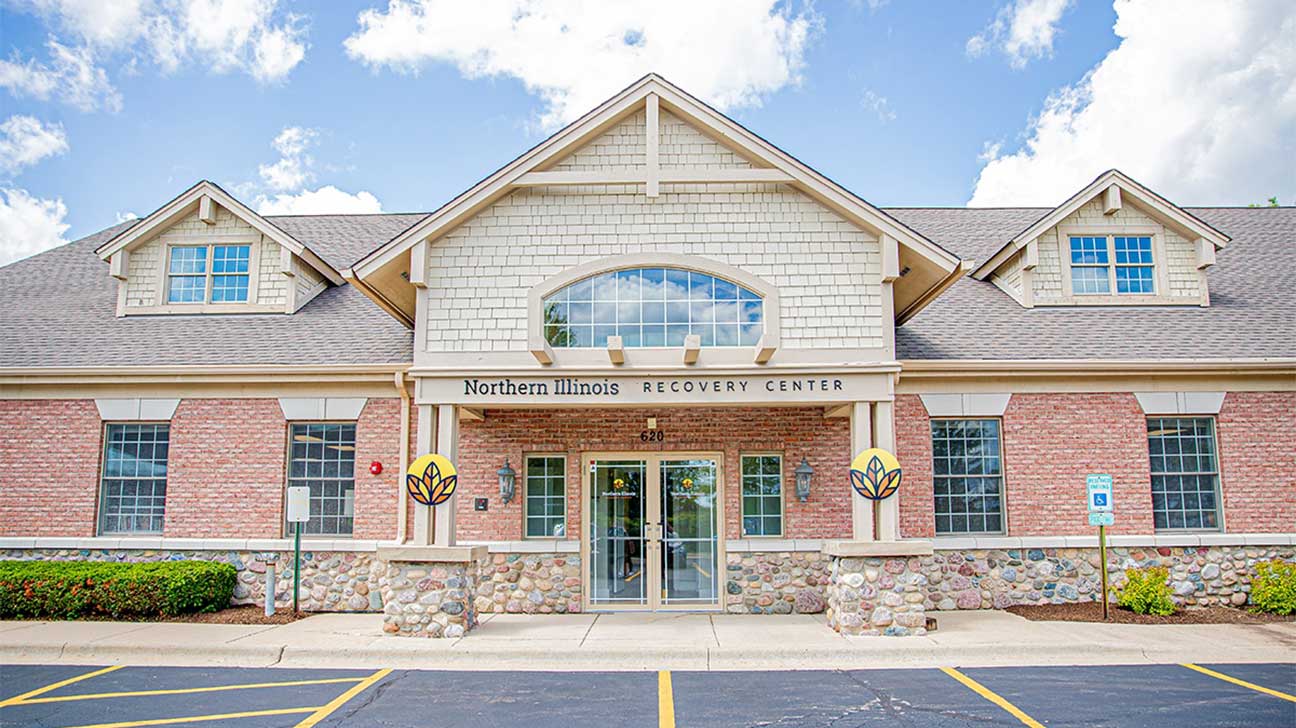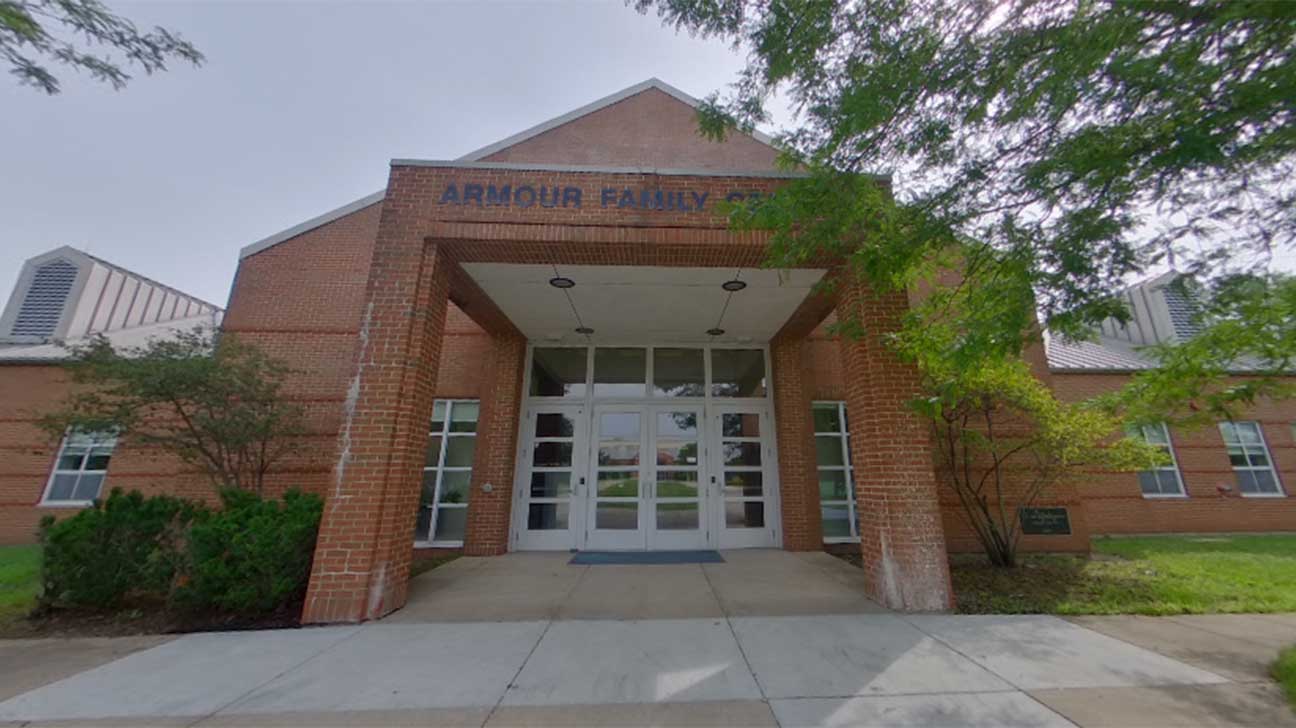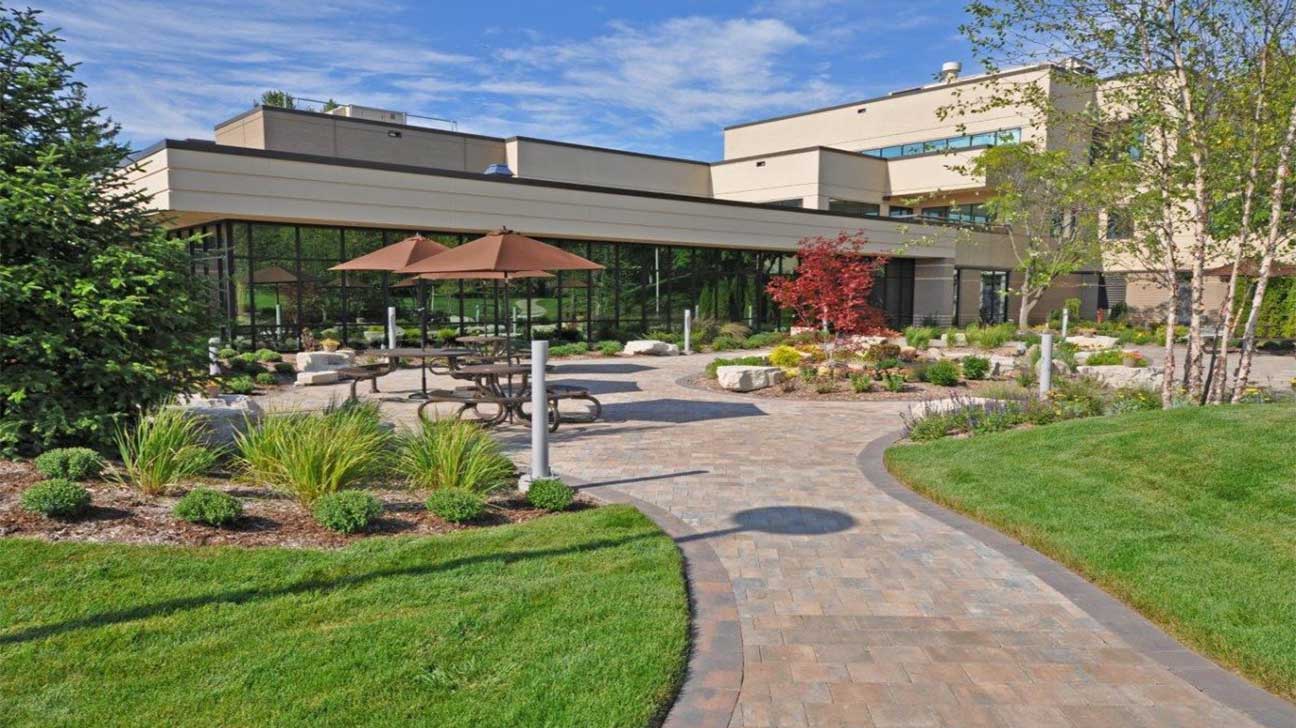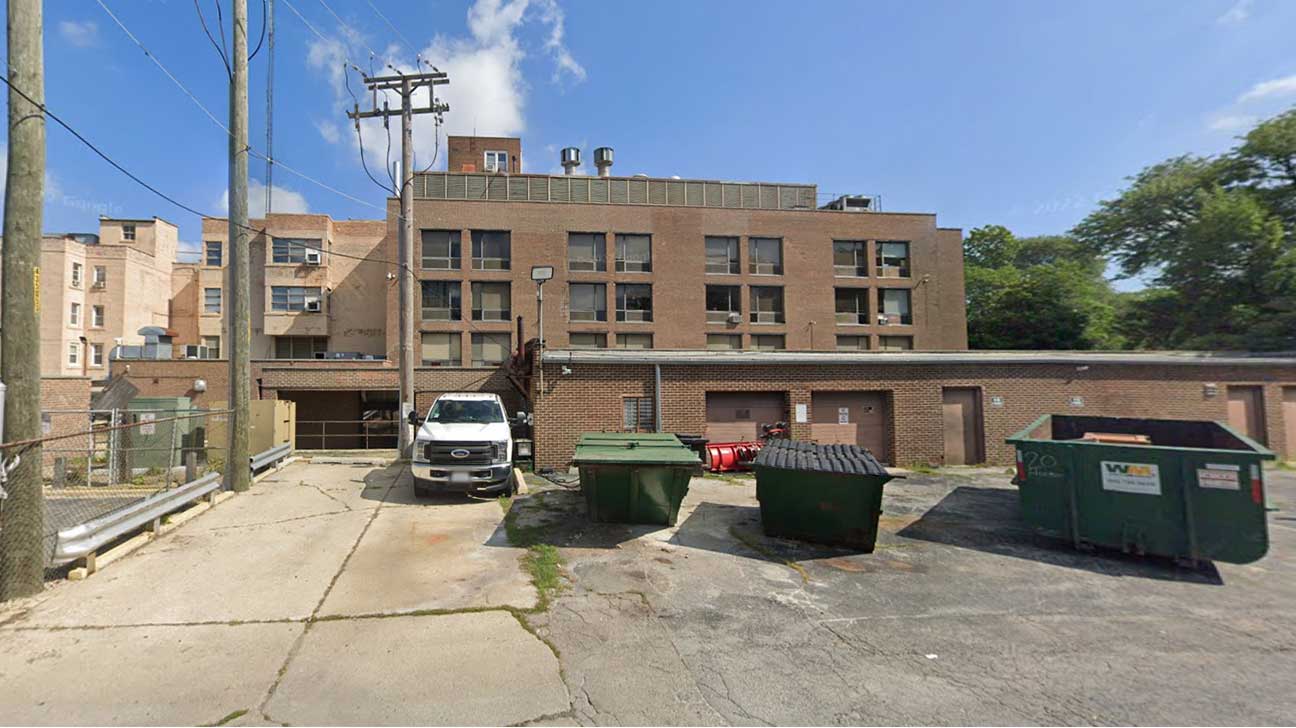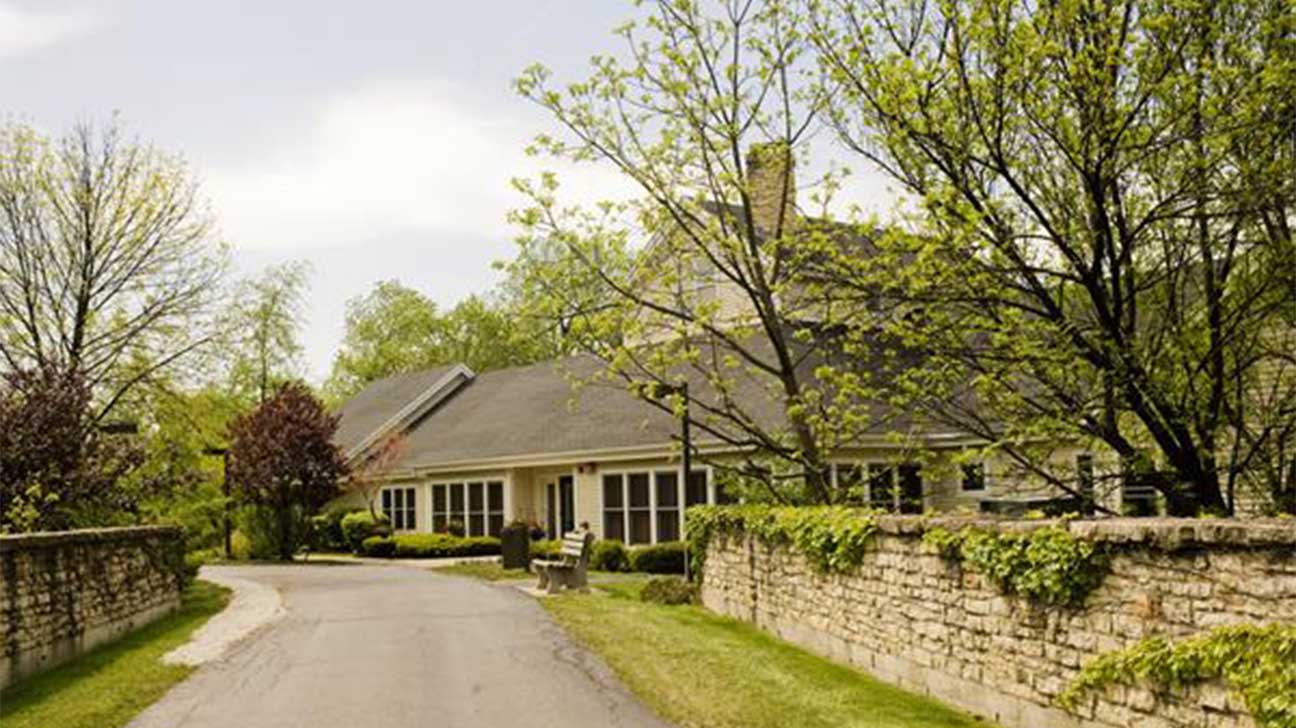
Illinois dual diagnosis rehab centers offer many treatment services for individuals needing dual diagnosis treatment.
Many treatment programs involve behavioral therapy, group therapy, and family services to treat co-occurring mental health and substance use disorders.
Inpatient treatment, multiple levels of outpatient treatment, and residential treatment are available for dual diagnosis clients in Illinois.
List Of Dual Diagnosis Treatment Centers In Illinois
Below, you can find a list of rehab centers in Illinois that offer dual diagnosis treatment. Each recovery center has been vetted to ensure it bears accreditation, certification, or other marks of quality.
1. Footprints To Recovery, Elgin, Illinois
Footprints To Recovery has locations in Colorado, Illinois, and New Jersey, including this drug and alcohol treatment center in Elgin, IL that also treats co-occurring mental illness.
The drug rehab center uses treatment approaches such as:
- individual therapy
- group therapy
- family therapy
- medication management
- medication-assisted treatment (MAT)
- dialectical behavior therapy (DBT)
- motivational interviewing (MI)
- eye movement desensitization and reprocessing (EMDR)
A few of the notable features of this recovery center are:
- LegitScript certification
- Joint Commission accreditation
- membership in the National Association of Addiction Treatment Providers (NAATP)
- membership in the National Association for Alcoholism and Drug Abuse Counselors (NAADAC)
Location and contact information:
411 W. River Rd.
Elgin, IL 60123
(855) 628-2899
2. Gateway Foundation, Chicago, Illinois
Gateway Foundation provides a dual diagnosis program that uses a range of behavioral therapies for mental health and substance abuse treatment in Chicago, IL.
Therapy and other services used here include:
- mindfulness and meditation therapy
- motivational interviewing
- 12-step programs
- SMART Recovery
- psychiatric care
- medication-assisted treatment
- safety/trauma and individual therapy
They offer levels of care such as residential treatment, a partial hospitalization program (PHP), outpatient programs (OP), and an intensive outpatient program (IOP).
Qualities featured by this addiction treatment center include:
- Joint Commission accreditation
- LegitScript certification
- NAATP membership
Location and contact information:
55 E. Jackson Blvd.
Ste. 1500
Chicago, IL 60604
(877) 352-9566
3. Northern Illinois Recovery Center, Crystal Lake, Illinois
This addiction treatment center in Crystal Lake, IL offers detoxification, residential treatment, a partial hospitalization program (PHP), an outpatient program (OP), aftercare, and more.
They provide support for co-occurring disorders such as:
- depression and addiction
- anxiety and substance use disorder
- bipolar disorder and substance addiction
- post-traumatic stress disorder (PTSD) and addiction
Co-occurring disorder treatment is provided with the following services:
- cognitive behavioral therapy (CBT)
- dialectical behavior therapy
- individual therapy
- group therapy
- family therapy
- yoga therapy
LegitScript certification, Joint Commission accreditation, National Board for Certified Counselors (NBCC) certification, and NAATP membership support the programs offered here.
Location and contact information:
620 N. State Route 31
Crystal Lake, IL 60012
(855) 234-5672
4. Positive Sobriety Institute, Chicago, Illinois
This substance abuse recovery center near Oak Park, IL, offers treatment programs for drug addiction, alcohol addiction, prescription drug abuse, and dual diagnosis clients.
Treatment plans for those with a dual diagnosis may include:
- psychotherapy
- support groups
- medications
- holistic therapy
- aftercare
Positive Sobriety Institute is Joint Commission-accredited and supported by client testimonials.
Location and contact information:
680 N. Lake Shore Dr.
Ste. 800
Chicago, IL 60611
(312) 312-9000
5. Recovery Centers Of America At St. Charles, St. Charles, Illinois
One of several drug and alcohol rehab centers provided by Recovery Centers of America, the location near Aurora, IL offers recovery services such as detox, MAT, residential, and outpatient care.
They have a dedicated dual diagnosis program with specialized therapy for individuals with co-occurring disorders, as well as multiple forms of behavioral therapy available.
Recovery Centers of America is backed by the following:
- LegitScript certification
- Joint Commission accreditation
- NAATP membership
Location and contact information:
41W400 Silver Glen Rd.
St Charles, IL 60175
(331) 901-4225
6. Rosecrance, Rockford, Illinois
This treatment facility in Rockford, IL, has a specialized dual diagnosis treatment program to address mental health issues and substance abuse together.
Options for dual diagnosis treatment include the following levels of care:
- residential treatment
- PHP
- IOP
- recovery living/sober living
- medically monitored detoxification
The following mental disorders can be treated with a substance use disorder here:
- mood disorders
- bipolar disorder
- depression
- anxiety disorders
- trauma and PTSD
- physical and/or mental abuse
- self-destructive behaviors
- suicidal behaviors
- poor impulse control
This substance abuse treatment center is verified through Joint Commission accreditation and NAATP membership.
Location and contact information:
1601 N. University Dr.
Rockford, IL 61107-5317
(866) 330-8729
7. Southwood Interventions, Chicago, Illinois
Detox, residential treatment, OP, and IOP services are available here.
Southwood Interventions provides treatment for substance abuse near Oak Lawn, IL, plus specialized programs for individuals with co-occurring mental health disorders.
Trusted qualities of this substance use disorder treatment center include:
- a 3.6-star Google rating
- Joint Commission accreditation
Location and contact information:
5701 S. Wood St.
Chicago, IL 60636
(773) 737-4600
8. Timberline Knolls, Lemont, Illinois
This is a residential treatment center in Lemont, IL for women and girls that offers treatment for a variety of co-occurring disorders.
They also provide PHP, IOP, faith-based treatment, family programs, and other services.
This treatment center has:
- positive client reviews
- evidence-based treatment for co-occurring disorders
Location and contact information:
40 Timberline Dr.
Lemont, IL 60439
(855) 995-0965
Types Of Treatment For Co-Occurring Disorders At Rehab Centers In Illinois
You can find a variety of treatment options for dual diagnosis care in Illinois. Most of the options are going to revolve around specific kinds of therapy.
These may include contingency management, cognitive behavioral therapy, EMDR, and dialectical behavior therapy.
Other treatments may involve medication to control the symptoms of a mental health disorder as well as drug cravings if needed.
How Common Is Dual Diagnosis In STATE?
According to the National Insititute on Drug Abuse (NIDA), about 8 million people nationally are affected by dual diagnosis. People with mental illness are much more likely to have a substance use disorder than people without.
Despite this, only a small percentage of people who have co-occurring disorders are likely to receive the appropriate treatment.
Meanwhile, in 2021, 29 people for every 100,000 died of a drug overdose in Illinois.
Choosing A Dual Diagnosis Program In Illinois
Choosing the right program for yourself or your loved one involves looking at the specific services offered by each rehab center.
Here are a few services and aspects of a dual diagnosis program to look for:
- Inpatient, outpatient, or residential addiction treatment: You may first want to choose which level of care you require for recovery.
- Behavioral therapy: Look for rehab programs that use group and individual therapy, CBT, DBT, motivational interviewing, EMDR, or another form of therapy.
- Specialization in dual diagnosis: Select a treatment center that specializes in treating clients with co-occurring mental health disorders and addiction.
Illinois Dual Diagnosis Treatment FAQs
Consider the information from these frequently asked questions below when choosing your dual diagnosis rehab program in Illinois.
What Kinds Of Treatment Are Available At An Illinois Dual Diagnosis Rehab Center?
Illinois dual diagnosis rehab centers offer multiple levels of outpatient care, including OP, IOP, and PHP.
You can also get short-term and long-term residential treatment in Illinois where you’ll live in the facility and receive daily treatment.
All programs use behavioral therapy, and most include some family services.
Are There Rehab Centers In Illinois That Offer Dual Diagnosis Treatment For Veterans?
Dual diagnosis treatment is often a big factor in treating veterans who have experienced combat and may be facing PTSD as well as an opioid use disorder or another substance use disorder.
Learn more about addiction treatment for veterans.
What Is The Difference Between A Dual Diagnosis And Co-Occurring Disorders In Illinois?
A co-occurring disorder can mean co-occurring substance abuse and mental health disorder or just co-occurring mental health disorders.
A dual diagnosis only refers to co-occurring substance abuse and mental health issues such as personality disorders, schizophrenia, or obsessive-compulsive disorder.
Find A Dual Diagnosis Rehab Center Today
If you or a loved one are battling substance abuse and a major depressive disorder or other mental disorders, you can find a dual diagnosis treatment.
Call us at AddictionResource.net to learn more about how to begin recovery.
Updated on April 4, 2023
Addiction Resource aims to provide only the most current, accurate information in regards to addiction and addiction treatment, which means we only reference the most credible sources available.
These include peer-reviewed journals, government entities and academic institutions, and leaders in addiction healthcare and advocacy. Learn more about how we safeguard our content by viewing our editorial policy.
- National Institute of Mental Health
https://www.nimh.nih.gov/health/topics/substance-use-and-mental-health - National Library of Medicine: MedlinePlus
https://medlineplus.gov/dualdiagnosis.html#:~:text=Someone%20with%20a%20dual%20diagnosis,you%20emotional%20and%20social%20support. - Substance Abuse and Mental Health Services Administration
https://www.samhsa.gov/medication-assisted-treatment/medications-counseling-related-conditions/co-occurring-disorders



